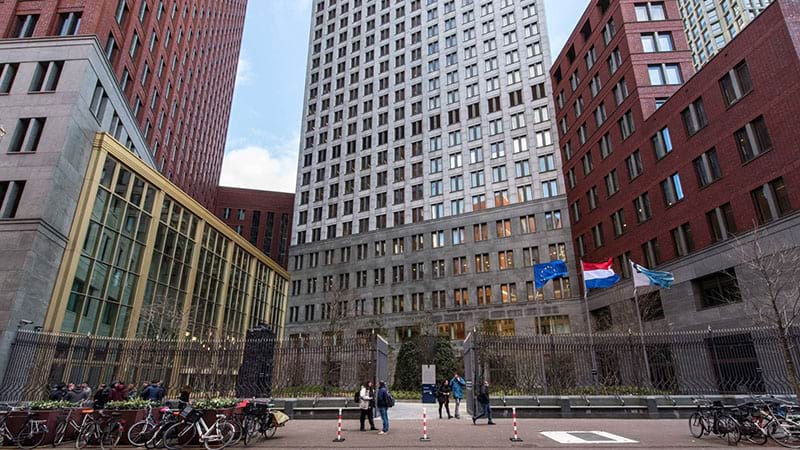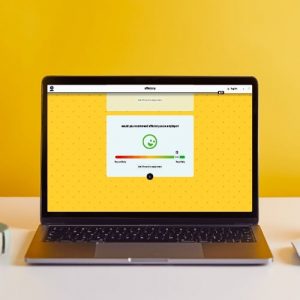Staying connected with employees is crucial for successful organizational development. It requires attention, time, and expertise. This is especially true for a large organization like the Ministry of the Interior and Kingdom Relations, which uses InternetSpiegel’s employee surveys to maintain its connection with more than 10,000 people. We spoke with Willemijn Weijschede (Senior Policy Advisor) and Quinci Buijs (Executive Secretary) from the Ministry’s Personnel & Organization (P&O) department to learn more.
How does the Ministry of the Interior and Kingdom Relations stay connected with its employees?

A diverse organization needs coordination
The Ministry of the Interior and Kingdom Relations is a complex organization with many layers, departments, and teams. Weijschede explains, “Each part of our organization is unique, with its own goals and ways of working. This diversity is great, but it also makes it challenging to stay in touch with all employees.” To understand how employees feel about their work, the Ministry has been using InternetSpiegel’s employee surveys together with Effectory for years.
These surveys are managed by the P&O department. Weijschede notes, “While we don’t directly contact the employees, our HRM advisors do. Each department has its own HRM advisor who keeps in close contact with the teams.” Buijs adds, “This way, we stay connected with all levels of our organization, even if indirectly.”

Freedom in survey themes
The Ministry conducts various types of employee surveys. Every two years, a broad survey is conducted across the entire organization. Weijschede says, “Within the P&O department, we decide on the standard questions for the survey. Given the size of our organization, we also allow units to add their own modules on important themes like workload, inclusiveness, and career development.” The representativeness of the survey is ensured in consultation with InternetSpiegel. Buijs adds, “Not every questionnaire suits everyone. Think, for example, of the people within our organization who are not digitally literate. We use different types of surveys to ensure everyone can share their experiences.”
In addition to the organization-wide survey, teams can also conduct flexible surveys. Participation in these is not mandatory. Weijschede states, “That doesn’t mean we’re cutting corners, but we give people the choice to participate. After all, taking part in a survey and discussing the results can be daunting, so we are mindful of that.” Buijs continues, “It needs to be part of the organizational culture. We notice that this is the case at our Ministry. Of course, we encourage participation. We continuously emphasize the importance of participating in surveys and also discuss it regularly with HRM advisors.“
Results lead to open conversations
These results are a great starting point for reviewing our policy. Do we need to make adjustments? And if so, where?
The ultimate goal of the employee survey is to work with the results. The organization is responsible for these results, which are shared with various dossier holders focusing on themes like diversity and inclusion, and hybrid working. Weijschede says, “They take a look at the results that fit their dossier. These results are a great starting point for reviewing our policy. Do we need to make adjustments? And if so, where?” The results are also shared with HRM advisors who then work with their teams to develop action plans. Buijs notes, “Together, they review the results at the department or team level and create a plan. We support them with advice.”
The Ministry of the Interior and Kingdom Relations uses InternetSpiegel’s Work Experience Scan for their employee surveys, based on the Job Demands & Resources (JDR) model. Learn more about the JDR-model.
Taking concrete action based on the survey results means starting conversations. The Ministry attended a ‘Train the Facilitator’ workshop to learn how to discuss survey results. Weijschede explains, “These conversations are important because without them, the results are just data. And that doesn’t mean much to the average employee. But the results provide a good starting point for discussions. By talking to each other, people feel heard, and any points for improvement can be addressed.” To assist HRM advisors, the P&O department has created various manuals for each subject.
The results are actively used within the organization. HRM advisors work together on the results
Both Weijschede and Buijs emphasize that the survey results are taken seriously. Weijschede mentions, “The results are actively used within the organization. HRM advisors work together on the results.” Buijs adds, “We discuss the results with different departments and determine together what needs attention. Then, we discuss these insights at management level and integrate key points into our annual plan.”
The ‘Train the Facilitator’ workshop, organized by InternetSpiegel and Effectory, helps internal advisors and managers learn how to discuss survey results with their teams, providing tools and inspiration for follow-up.
Looking to the future
The Ministry conducts its employee survey every two years, with the last one in 2023. They also run an ongoing Exit Monitor. Weijschede says, “That doesn’t mean we’re not doing anything this year. Last year, the Executive Board focused on diversity and inclusion, and this year we’re delving deeper into these topics. Departments can also participate in various Pulse Surveys, which are optional but offer a chance to conduct in-depth research and track progress.”
Book a free demo. See our solutions in action.
Effectory is Europe’s Leading provider of Employee Listening Solutions. Schedule a product demo and discover how to enhance your employees’ engagement.
Demo request